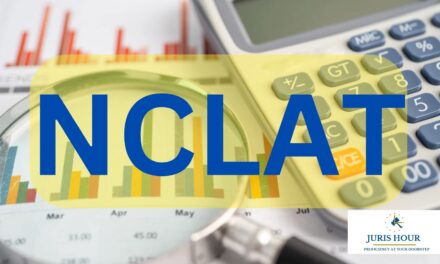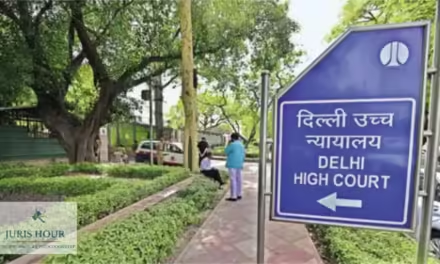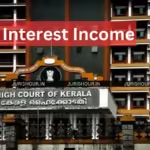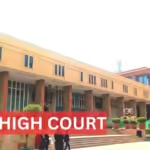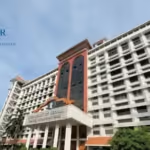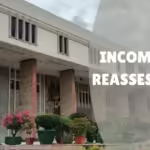The Supreme Court has held that the statements recorded under Prevention of Money Laundering Act, 2002 (PMLA) during the inquiry are deemed to be judicial proceedings.
The bench of Justice Bela M. Trivedi has observed that statements recorded by the Authorities under Section 50 of PMLA are not hit by Article 20(3) or Article 21 of the Constitution, rather the statements recorded by the authority in the course of inquiry are deemed to be the Judicial proceedings in terms of Section 50(4), and are admissible in evidence. However, the statements made by any person to a Police Officer in the course of an investigation under Chapter XII of the Code of Criminal Procedure (Cr. PC) could not be used for any purpose, except for the purpose stated in the proviso to Section 162 of the Code.
The bench stated that there are glaring inconsistencies between Section 50 PMLA and Section 160/161 Cr.P.C, the provisions of Section 50 PMLA would prevail in terms of Section 71 and Section 65.
The appellants, Abhishek Banerjee and Rujira Banerjee sought the quashing of the Summons issued to them by the Enforcement Directorate under Section 50 of the Prevention of Money Laundering Act, 2002 (PMLA), and seeking direction against the ED not to issue any Summons under Section 50 of the PMLA Act to the Appellants for their appearance in New Delhi, rather than their hometown/ place of domicile i.e. Kolkata.
An FIR came to be registered by the CB for the offences under Section 120B and 409 of IPC and Section 13(2) r/w 13(1)(a) of the Prevention of Corruption Act, 1988, in respect of alleged illegal excavation and theft of Coal taking place in the leasehold areas of Eastern Coalfields Limited (ECL) by one Anup Majee alias Lala with the active connivance of certain employees of ECL. Based on the FIR, on 28.11.2020, an ECIR came to be registered by the Respondent at their Head Investigative Unit situated at New Delhi.
During the course of investigation of the FIR in respect of theft of Coal and illegal excavation being done by the criminal elements in the leasehold area of ECL, a large number of vehicles/ equipments used in the illegal coal mining and its transportation were seized. It was also found that the said case involved money laundering to the tune of Rs. 1300 Crores.
According to the ED one of the accused Vikas Mishra was arrested on 16.03.2021 and another accused Inspector Ashok Mishra of Bankura Police Station was arrested on 03.04.2021, who had become part of illegal Coal mafia and had helped in laundering several hundred crores of rupees.
It was also found during the course of investigation that Inspector Ashok Kumar Mishra had allegedly received Rs.168 crores in just 109 days from the co-accused Anup Majee, to be delivered to his political bosses including co-accused Vinay Mishra. Rs.168 crores were allegedly transferred through vouchers to Delhi and Overseas.
ED issued Summons to the Appellants under Section 50 of PMLA seeking his personal appearance with the documents sought for.
The summons were challenged by the appellants by filing the crimina writ petition before the High Court, which was dismissed by the High Court.
The appellant contended that Section 50 of the PMLA merely indicates the substantive power of ED to summon but does not provide the procedure for exercise of such power. The procedure relating to territoriality of investigation, or power to summon sick, or infirm/ women/ children and record their statements has not been provided under Section 50 PMLA, as it is provided under Section 160 and 161 Cr.P.C.
The appellant argued that power without guidance for manner in which it is to be exercised could not be said to be fair, just and reasonable procedure established by law under Article 21 of the Constitution. A combined reading of Section 4(2) Cr.P.C. and Section 65 PMLA would show that the application of the Code is not barred as long as the provisions of the Code are consistent with the PMLA.
The department contended that Section 91 Cr.P.C. neither encompasses any territorial jurisdictional limit nor does it contain any proviso for women, minors or elderly akin to Section 160 Cr.P.C. A police officer has to resort to Section 91 Cr.P.C. to mandate the provision of any document. Hence, Section 91 Cr.P.C. cannot be equated with the powers under Section 50 of PMLA. ED has the power to summon any person whose attendance is considered necessary whether to give evidence or to produce any record as contemplated in Section 50 of the PMLA. A statement made under Section 50 is admissible in evidence, whereas the statement made under Section 161 is inadmissible as provided under Section 162 Cr.P.C.
The court held that the provisions of PMLA are not only to investigate into the offence of money laundering but more importantly to prevent money laundering and to provide for confiscation of property derived from or involved in money laundering and the matters connected therewith and incidental thereto. As held by the Three-Judge Bench in Vijay Madanlal, the PMLA is a self- contained Code and the dispensations envisaged thereunder, must prevail in terms of Section 71 thereof, which predicates that the provisions of the Act shall have effect notwithstanding anything inconsistent therewith contained in any other law for the time being in force, which includes provisions of the Cr.P.C.
The court while dismissing the appeals held that conjoint reading of Section 71 and Section 65 of the PMLA as also Section 4(2) and Section 5 of the Code, there remains no shadow of doubt that the provisions of PMLA will have the effect notwithstanding anything inconsistent therewith contained in any other law for the time being in force, including the provisions of the Cr.P.C.
Case Title: Abhishek Banerjee Versus Directorate Of Enforcement
Case No.: Criminal Appeal No(S). 2221-2222 Of 2023
Date: 09.09.2024
Counsel For Appellant: Kapil Sibal, Abhishek Manu Singhvi
Counsel For Respondent: S.V. Raju


